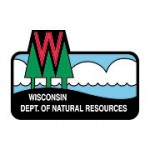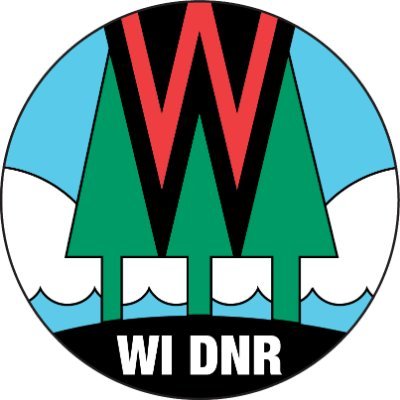Groundwater Coordinating Council Releases Annual Report
Nitrates, PFAS Top List Of Improvement Recommendations
MADISON, Wis. – The Wisconsin Groundwater Coordinating Council today shared key recommendations for protecting and preserving vital groundwater resources in its 2021 annual report to the Wisconsin State Legislature. The recommendations focus on evaluating and addressing drinking water contamination from nitrates, perfluoroalkyl and polyfluoroalkyl (PFAS) chemicals, and viruses and other microbial pathogens.
The council is an interagency group that is directed by law to assist state agencies in the coordination and exchange of information related to groundwater programs. Administrative support for the council is provided by the Wisconsin Department of Natural Resources (DNR). The council prepares an annual report each year that summarizes the operations and activities of the council, describes the state of the groundwater resource and its management and makes recommendations.
“New groundwater challenges continue to arise in Wisconsin and the Groundwater Coordinating Council is at the forefront of bringing people together to identify effective solutions that ensure Safe Water For All,” said Jim Zellmer, DNR Deputy Administrator, Environmental Management Division. “Building off of Gov. Tony Evers’ declaration of 2019 as the Year of Clean Drinking Water, the work continues to improve the safety of Wisconsinites’ drinking water with an added focus on on helping our most vulnerable residents.”
Three of the key recommendations in the report address some of the most prevalent and pressing issues in Wisconsin water quality, including:
- Protecting groundwater from nitrate and other agricultural contaminants;
- Addressing public health and environmental concerns from perfluoroalkyl and polyfluoroalkyl (PFAS) chemicals; and
- Evaluating groundwater for viruses and other microbial pathogens
Areas of the state with a greater density of agriculture generally have a higher frequency of nitrate and pesticide detection, especially in areas of the state with susceptible geology and soils. The report recommends supporting research assessing conservation plans that identify and encourage the use of alternate cropping and nutrient management practices that help prevent agricultural nitrogen from reaching groundwater. The council also recommends developing an outreach program to spur action to implement these plans.
Viruses and other microbial pathogens have been found in municipal and private wells, challenging previous assumptions about how they persist and move in groundwater. Identifying where and when pathogens pose threats to human health is fundamental to improving drinking water quality. The council recommends working with partners to increase awareness of waste disposal practices and their risks and costs.
The 2021 report also highlights the need for increased support of applied groundwater research to protect and preserve our valuable groundwater resources. Wisconsin is recognized as a national leader in groundwater research largely due to the council’s well–established research funding process. Increased funding could be used to address emerging groundwater contaminant concerns such as PFAS.
The Groundwater Coordinating Council was formed in 1984 to provide a framework for state agencies to coordinate activities and exchange information on groundwater. Today, the council and its subcommittees regularly bring together staff from more than 10 different agencies, academia, institutions and organizations to collaborate on a variety of research, monitoring, data management, education and planning issues. These activities increase coordination between agencies to avoid duplication, create efficiencies and maximize limited resources.
NOTE: This press release was submitted to Urban Milwaukee and was not written by an Urban Milwaukee writer. While it is believed to be reliable, Urban Milwaukee does not guarantee its accuracy or completeness.
More about the PFAS Problem
- Environmental Advocates Hail Wisconsin Supreme Court Decision in Evers v Marklein - Midwest Environmental Advocates - Jul 8th, 2025
- Wisconsin Supreme Court Backs State Regulators of PFAS Pollution - Danielle Kaeding and Rich Kremer - Jun 24th, 2025
- Gov. Evers Releases Statement on Wisconsin Supreme Court Decision in WMC Inc v. DNR - Gov. Tony Evers - Jun 24th, 2025
- Rep. Shelia Stubbs Elected Great Lakes-St. Lawrence Legislative Caucus Vice Chair of the Task Force on Emerging Contaminants - State Rep. Shelia Stubbs - Jun 16th, 2025
- Legislature’s Budget Committee Unanimously Boosts Clean Water Funding By $732 Million - Danielle Kaeding - Jun 6th, 2025
- Trump Administration moves to weaken standards for toxic ‘forever chemicals’ in drinking water - Clean Wisconsin - May 14th, 2025
- Wisconsin Officials Unhappy With EPA Plan To Weaken PFAS Standards - Danielle Kaeding - May 14th, 2025
- Wisconsin Could Lose $55 Million Under Proposed EPA Budget Cuts - Danielle Kaeding - May 7th, 2025
- French Island Makes Progress on PFAS Pollution - Richelle Wilson and Trevor Hook - Mar 24th, 2025
- Who Will Pay for PFAS Pollution? - Bennet Goldstein - Feb 27th, 2025
Read more about PFAS Problem here






















